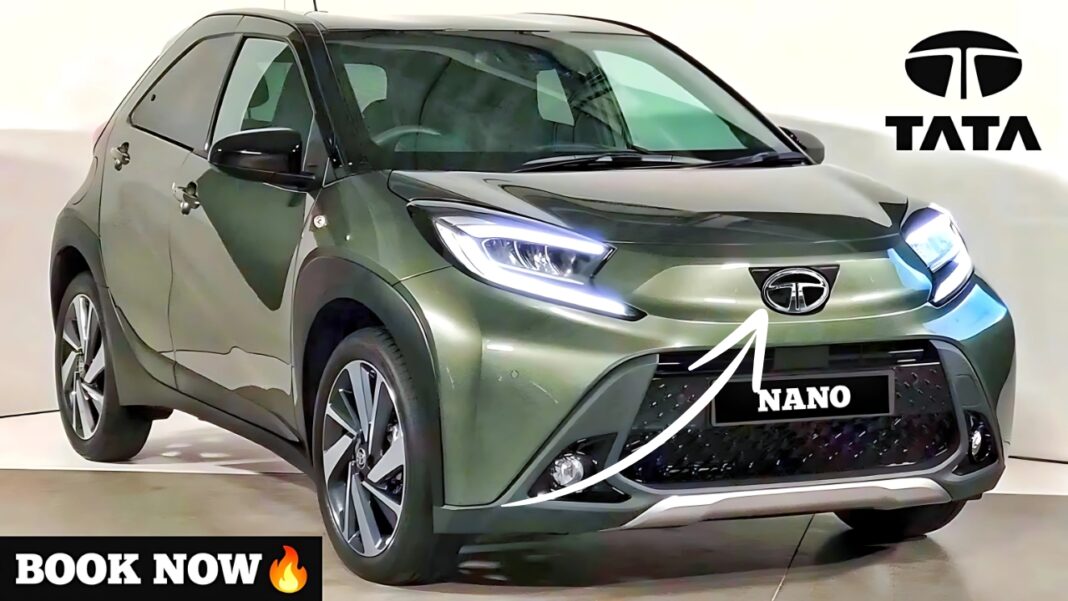In a surprising turn of events, Tata Motors is reportedly considering reviving its iconic Nano model as an all-electric vehicle.
The move could potentially reshape the affordable electric vehicle (EV) landscape in India.
Although official announcements are yet to be made, industry insiders suggest that the Tata Nano EV project is in the early stages of development, and the probable launch timeframe is set for late 2025 or early 2026.
The original Tata Nano, launched in 2009, was hailed as the world’s cheapest car. Despite its initial buzz, the petrol-powered Nano faced challenges and was eventually discontinued.
However, the concept of an extremely affordable car for the masses remains an attractive idea, especially in the context of India’s growing EV market.
The proposed Tata Nano EV is expected to retain the compact dimensions of its predecessor while incorporating modern design elements and electric powertrain technology.
Sources close to the project say that the new Nano EV will have the following features:
-
Range of around 200-250 km on a single charge, meeting the needs of urban commuters and short distance commuters.
-
Fast charging capability, allowing 80% charge in less than an hour.
-
A small but efficient electric motor, probably producing around 40-50 horsepower.
-
Modern features like digital instrument cluster, touchscreen infotainment system and smartphone connectivity.
-
Advanced safety features to meet current regulatory standards.
Tata Motors’ primary challenge will be to maintain the core philosophy of affordability while adapting the Nano to electric technology.
Industry analysts estimate the Nano EV to be priced between Rs. 5 lakh to Rs. 7 lakh, positioning it as one of the most affordable electric cars in India.
To achieve this price point, Tata can leverage the following:
-
Economies of scale through its existing EV production infrastructure.
-
Locally sourced components and batteries.
-
Government incentives and subsidies for electric vehicles.
The potential launch of the Tata Nano EV comes at a time when India is pushing for greater EV adoption.
With rising fuel prices and growing environmental awareness, an affordable electric car could find a ready market among first-time car buyers, urban families looking for a second vehicle, and ride-sharing services.
However, the project faces several challenges:
-
Battery technology and cost: ensuring a balance between range and affordability.
-
Charging Infrastructure: Need for widespread charging stations, especially in tier-2 and tier-3 cities.
-
Consumer Perception: Overcoming the Mixed Legacy of the Original Nano.
-
Competition: Other automakers are also eyeing the affordable EV segment.
The Nano EV project is in line with Tata Motors’ broader strategy to lead the EV revolution in India. The company has already tasted success with models like Nexon EV and Tigor EV.
The introduction of more affordable options could help Tata capture a significant share in the entry-level EV market.
Ravi Bhatia, President, JATO Dynamics India, commented, “If Tata can successfully launch an affordable EV like the Nano, it could be a watershed moment for electric mobility in India.
The key will be to offer a compelling product that doesn’t compromise essential features while maintaining an attractive price point.
The potential introduction of affordable EVs like the Nano could have significant environmental impacts.
By making electric mobility accessible to a wider segment of the population, it can contribute to reducing urban air pollution and carbon emissions from the transport sector.
Although Tata Motors has not officially confirmed the Nano EV project, the automotive industry is full of speculations.
If this project is successful, it could prove to be an important milestone in India’s journey towards electric mobility.
As we wait for more concrete details, the idea of the electric Nano is a reminder of India’s ability to innovate in the EV sector.
It represents the confluence of technological advancements, environmental consciousness and the enduring appeal of affordable mobility solutions.
The coming months will be crucial as Tata Motors potentially moves ahead with this ambitious project.
Whether Nano EVs will become a reality or not, it is clear that the race for affordable electric vehicles is accelerating in India, which promises an exciting future for both consumers and the automotive industry.









